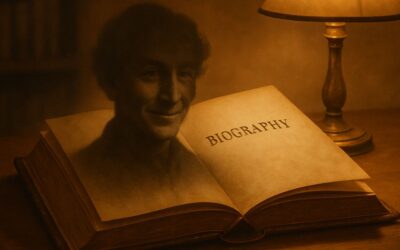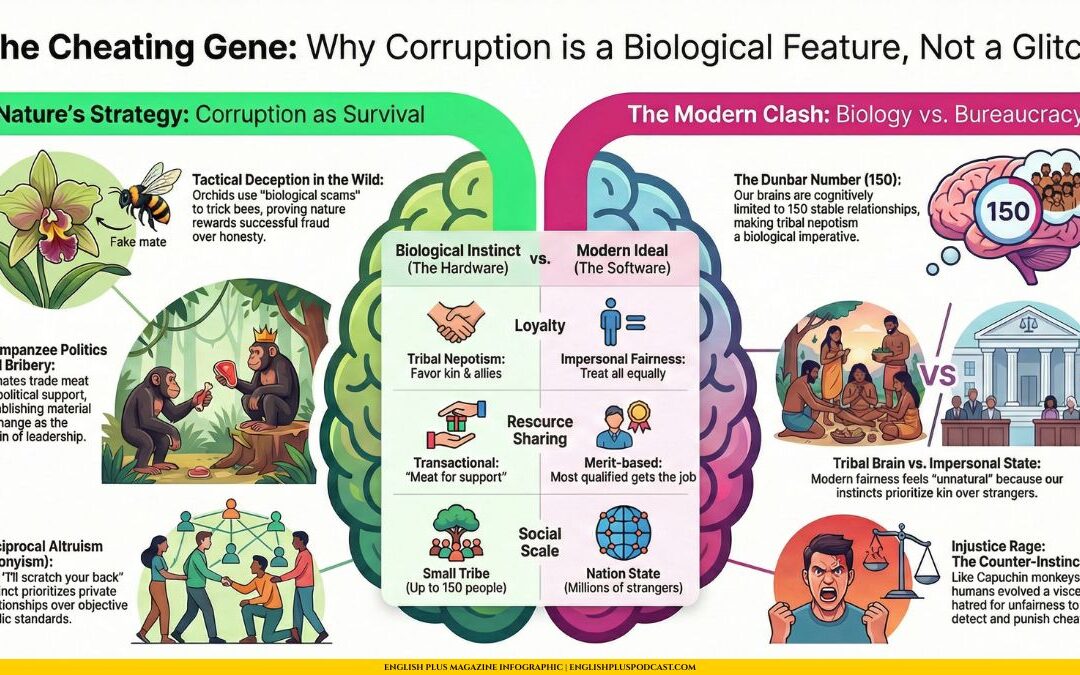- The Promise of Adventure
- Portraying Character Complexity
- Intriguing Paradoxes
- Foreshadowing Conflict
- Setting the Tone
- Conclusion
- Keywords:
- Key Takeaways:
- You Might Still Be Wondering about…
- How do opening lines contribute to the overall reading experience?
- What are some other examples of opening lines that promise adventure in literature?
- How do opening lines that portray character complexity contribute to the overall development of the story?
- Can you provide examples of opening lines that introduce intriguing paradoxes in literature?
- How does foreshadowing conflict through the opening line contribute to the overall tension in a story?
- What are some other examples of opening lines that effectively set the tone for the entire narrative?
- How does the choice of words and literary devices impact the effectiveness of an opening line?
- What are some notable opening lines in contemporary literature that have gained recognition?
- How can authors balance providing intrigue and setting up the story in the opening line?
- How can aspiring writers improve their ability to create impactful opening lines?
- Common Misconceptions:
- Opening lines must be long and elaborate to be impactful.
- Opening lines should reveal the entire plot of the story.
- All opening lines need to be dramatic or attention-grabbing.
- Opening lines should always be written in the present tense.
- Opening lines should include extensive descriptions or background information.
- Opening lines must be entirely original to be impactful.
- Opening lines should always be serious or profound.
- Opening lines should introduce all the main characters and their relationships.
- Opening lines are only important in novels or longer works of literature.
- Opening lines should always be written first and remain unchanged.
The art of storytelling has been at the heart of human communication for millennia. Literature, one of its most refined forms, has always found ingenious ways to engage readers right from the first line. The opening line sets the tone, creates intrigue, and offers a glimpse into the world the author has crafted. Here, we’ll explore some unforgettable opening lines in literature and the elements that make them so impactful.
The Promise of Adventure
One of the most exciting ways a story begins is by promising an adventure, thrusting characters (and readers) into a whirlwind of action and anticipation.
Consider the opening line of J.R.R. Tolkien’s “The Hobbit”: “In a hole in the ground there lived a hobbit.” This simple statement hints at a world beyond our reality—a world inhabited by strange creatures like hobbits. It sparks curiosity, encouraging readers to delve deeper into the book to explore the unique universe Tolkien has created.
Portraying Character Complexity
An opening line can also offer a glimpse into a character’s complexity, setting the stage for the exploration of human nature.
The iconic opening of Jane Austen’s “Pride and Prejudice” does precisely this: “It is a truth universally acknowledged, that a single man in possession of a good fortune, must be in want of a wife.” This sentence cleverly introduces the societal expectations of the time and simultaneously hints at the witty critique of these norms that Austen weaves throughout her novel.
Intriguing Paradoxes
Creating a sense of paradox or contradiction is another way authors capture readers’ attention from the very first line. This strategy piques curiosity, inviting readers to unravel the paradox as the story unfolds.
Franz Kafka’s “The Metamorphosis” begins with a striking contradiction: “When Gregor Samsa woke up one morning from unsettling dreams, he found himself changed in his bed into a monstrous vermin.” This surreal transformation promises an extraordinary tale, inspiring readers to delve into the narrative and discover the implications of Gregor’s condition.
Foreshadowing Conflict
An opening line can also foreshadow the story’s central conflict, introducing the tension that propels the narrative.
Herman Melville does this brilliantly in “Moby Dick” with the memorable line: “Call me Ishmael.” The simplicity of this statement belies the complex tale of obsession and revenge that awaits readers. Ishmael, our narrator, is about to embark on a harrowing journey aboard the Pequod, setting the stage for the novel’s exploration of human ambition and its consequences.
Setting the Tone
Finally, the opening line can set the tone for the rest of the story, providing readers with an emotional landscape that resonates throughout the narrative.
Consider the haunting opening of George Orwell’s “1984”: “It was a bright cold day in April, and the clocks were striking thirteen.” This opening line sets an unsettling tone, introducing a world that is familiar yet eerily distorted—a world where even time is not as it seems.
Conclusion
The power of an unforgettable opening line in literature lies in its ability to draw readers into the story, create intrigue, and set the tone for the entire narrative. These first impressions, when crafted masterfully, leave a lasting impact, transforming the way readers perceive and engage with the story. As we reflect on these memorable lines, we gain a deeper appreciation for the authors’ artistry, reminding us that the magic of storytelling often begins with a single, captivating line.
Keywords:
- Opening line: The initial sentence or sentences of a literary work that serves to engage the reader and set the tone for the story.
- Literature: Written works of fiction, poetry, or drama that have artistic value and are considered as a form of creative expression.
- Storytelling: The act of conveying or narrating a sequence of events, often in a structured and compelling manner, to entertain, inform, or engage an audience.
- Intrigue: A sense of fascination, curiosity, or mystery that captures the attention of the reader and compels them to continue reading.
- Adventure: An exciting, often perilous, journey or experience characterized by unexpected events, challenges, and discoveries.
- Character complexity: The depth, multidimensionality, and psychological intricacies of a character, including their motivations, conflicts, and internal struggles.
- Paradox: A seemingly contradictory or absurd statement or situation that, upon deeper examination, reveals an underlying truth or complexity.
- Foreshadowing: A literary device used to hint or suggest future events, conflicts, or outcomes in a story, often creating a sense of anticipation or tension.
- Conflict: The struggle or clash between opposing forces, ideas, or characters that drives the plot of a story and generates dramatic tension.
- Tone: The emotional or atmospheric quality that pervades a literary work, conveying the author’s attitude or feelings towards the subject matter.
Key Takeaways:
- Opening lines in literature play a crucial role in engaging readers and setting the stage for the story.
- A well-crafted opening line can promise adventure, introduce character complexity, present intriguing paradoxes, foreshadow conflicts, or set the tone for the narrative.
- Memorable opening lines have the power to captivate readers, spark curiosity, and leave a lasting impact on their perception of the story.
- The choice of words, sentence structure, and literary devices used in the opening line contribute to its effectiveness.
- Opening lines can vary widely in style, tone, and approach, reflecting the unique voice and vision of the author.
You Might Still Be Wondering about…
How do opening lines contribute to the overall reading experience?
Opening lines are essential in grabbing the reader’s attention, setting expectations, and establishing a connection between the reader and the story. They can shape the reader’s initial impression, evoke emotions, and create a sense of anticipation.
What are some other examples of opening lines that promise adventure in literature?
It was the best of times, it was the worst of times.” (Charles Dickens, “A Tale of Two Cities”)
“It was a pleasure to burn.” (Ray Bradbury, “Fahrenheit 451”)
“It was a queer, sultry summer, the summer they electrocuted the Rosenbergs.” (Sylvia Plath, “The Bell Jar”)
How do opening lines that portray character complexity contribute to the overall development of the story?
By providing insights into a character’s desires, conflicts, or societal roles, opening lines that depict character complexity lay the foundation for deeper exploration of human nature, motivations, and relationships throughout the narrative.
Can you provide examples of opening lines that introduce intriguing paradoxes in literature?
“It is a truth universally acknowledged, that a single man in possession of a good fortune, must be in want of a wife.” (Jane Austen, “Pride and Prejudice”)
“Happy families are all alike; every unhappy family is unhappy in its own way.” (Leo Tolstoy, “Anna Karenina”)
How does foreshadowing conflict through the opening line contribute to the overall tension in a story?
By hinting at the central conflict or problem that characters will face, opening lines that foreshadow conflict create a sense of anticipation and curiosity, driving the reader’s engagement with the story and its subsequent resolution.
What are some other examples of opening lines that effectively set the tone for the entire narrative?
“It was a dark and stormy night.” (Edward Bulwer-Lytton, “Paul Clifford”)
“All happy families are alike; each unhappy family is unhappy in its own way.” (Fyodor Dostoevsky, “Anna Karenina”)
How does the choice of words and literary devices impact the effectiveness of an opening line?
The selection of words, their arrangement, and the use of literary devices such as metaphors, similes, or allusions contribute to the overall impact of the opening line. They can evoke emotions, create vivid imagery, or convey thematic elements, enhancing the reader’s engagement with the story.
What are some notable opening lines in contemporary literature that have gained recognition?
“It was a bright cold day in April, and the clocks were striking thirteen.” (George Orwell, “1984”)
“The sky above the port was the color of television, tuned to a dead channel.” (William Gibson, “Neuromancer”)
How can authors balance providing intrigue and setting up the story in the opening line?
Crafting an opening line that balances intrigue and exposition requires careful consideration of the story’s core elements, themes, and tone. It involves providing enough information to captivate the reader while leaving room for further exploration and discovery.
How can aspiring writers improve their ability to create impactful opening lines?
Aspiring writers can study and analyze notable opening lines from various genres and time periods to understand the techniques used by accomplished authors. Experimenting with different styles, tones, and structures can also help develop their own unique voice and approach to crafting captivating opening lines.
Common Misconceptions:
Opening lines must be long and elaborate to be impactful.
Reality: Opening lines can be short and concise while still being powerful and engaging. The key lies in the choice of words and the impact they create.
Opening lines should reveal the entire plot of the story.
Reality: Opening lines are meant to pique curiosity and draw readers in, not give away the entire plot. They provide a glimpse into the world or characters, leaving room for discovery and surprises.
All opening lines need to be dramatic or attention-grabbing.
Reality: While attention-grabbing opening lines can be effective, different stories require different approaches. Sometimes a subtle or introspective opening line can be just as impactful, depending on the tone and themes of the story.
Opening lines should always be written in the present tense.
Reality: Opening lines can be written in various tenses, depending on the narrative style and author’s intention. Past, present, and even future tenses can be used effectively to engage readers.
Opening lines should include extensive descriptions or background information.
Reality: Opening lines are best when they focus on the essence of the story rather than providing excessive details. They should aim to capture the reader’s interest and curiosity, not overwhelm them with information.
Opening lines must be entirely original to be impactful.
Reality: While originality can make an opening line stand out, what matters most is the execution and how well it aligns with the story’s themes, style, and intended audience. Effective opening lines can draw inspiration from existing works without being derivative.
Opening lines should always be serious or profound.
Reality: Opening lines can be serious, humorous, poetic, or thought-provoking, depending on the tone and genre of the story. The key is to create an emotional connection with the reader and set the appropriate mood.
Opening lines should introduce all the main characters and their relationships.
Reality: While some opening lines may introduce a character or hint at their role, it is not necessary to include all characters or their relationships. Opening lines should focus on engaging the reader rather than providing an exhaustive character introduction.
Opening lines are only important in novels or longer works of literature.
Reality: Opening lines are essential in various forms of literature, including short stories, poems, and essays. Regardless of length, a captivating opening line can significantly impact the reader’s engagement with the piece.
Opening lines should always be written first and remain unchanged.
Reality: While some authors may write the opening line first, others may discover it during the writing process or revise it multiple times. Opening lines, like the rest of the work, can evolve and be refined to achieve the desired impact and resonance.










0 Comments